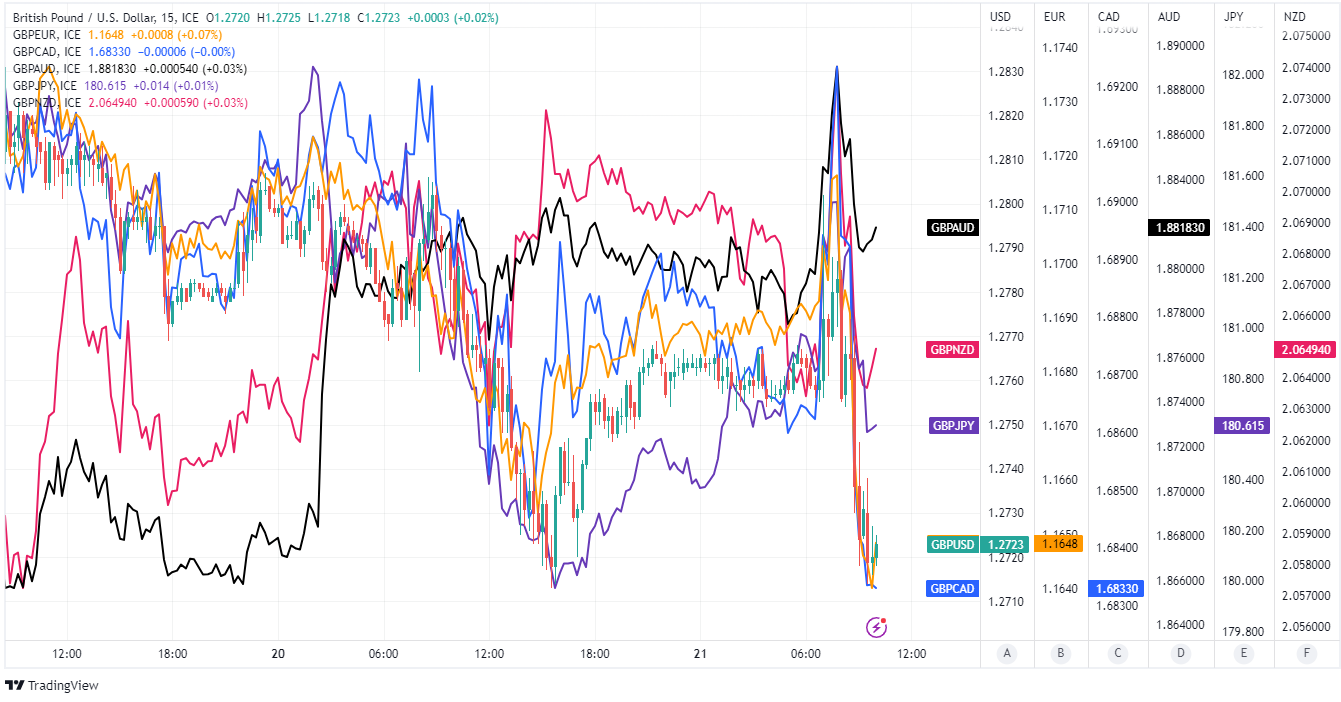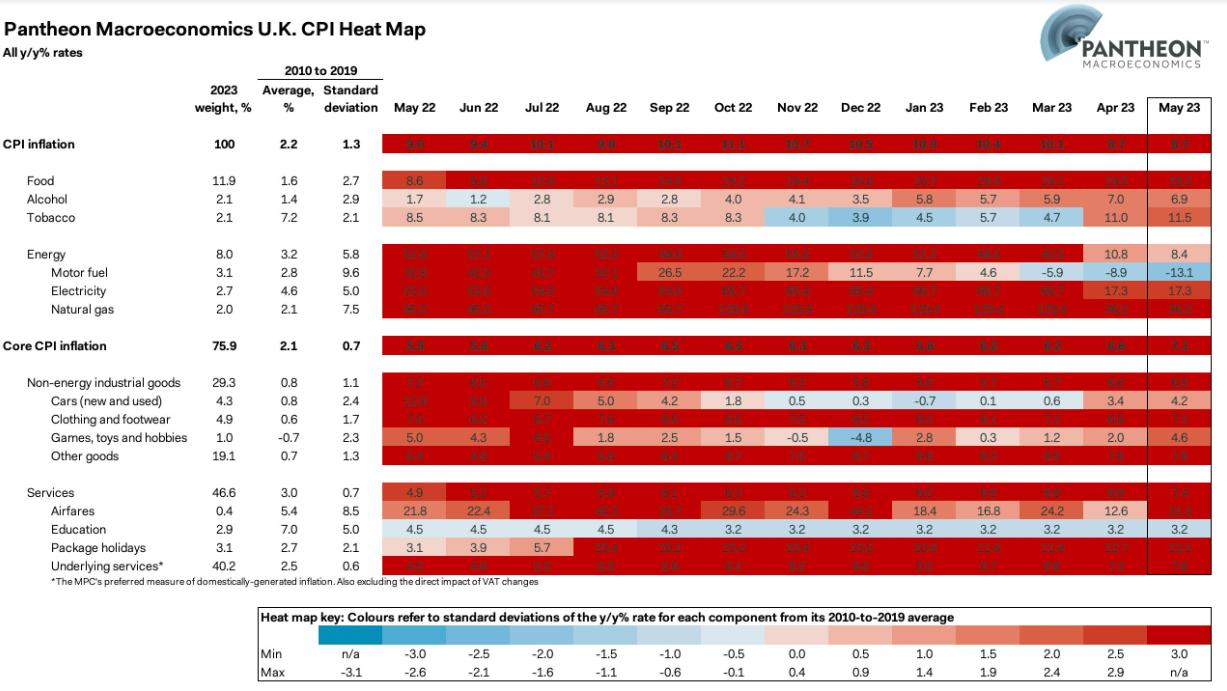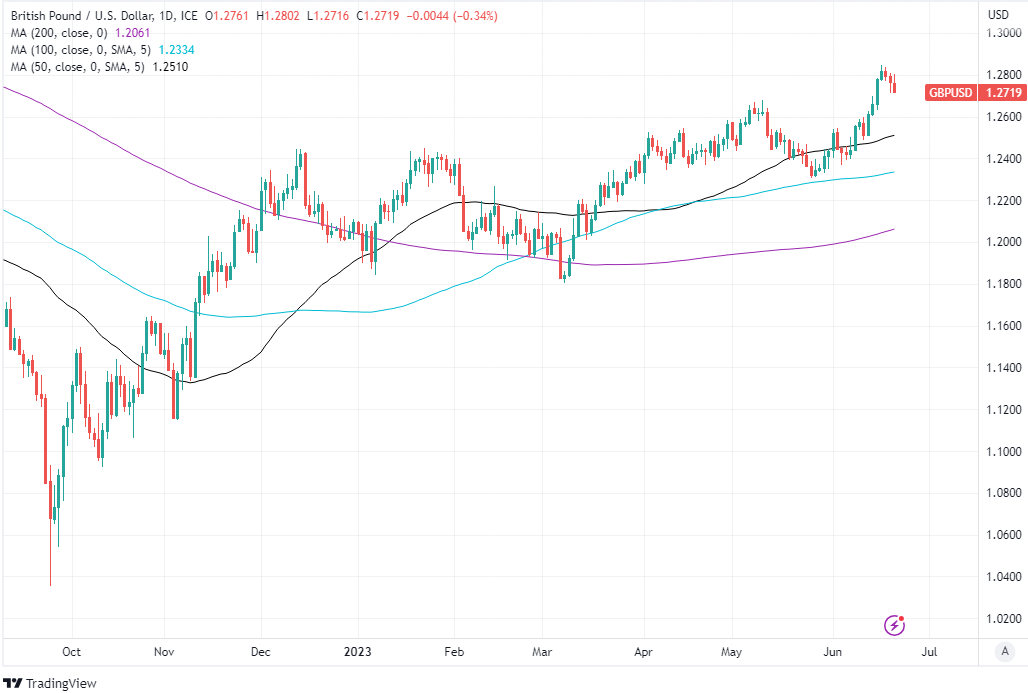GBP/USD Rate Volatile after Inflation Genie Seeps from Lantern in London
- Written by: James Skinner
"Inflation in the UK continues to confound expectations" - Premier Miton Investors.

Image © Adobe Images
The Pound to Dollar exchange rate soon gave back short-lived gains in midweek trade after the Office for National Statistics (ONS) suggested an inflation genie may be seeping out of a lantern in London with a May consumer price outcome that may worry the Bank of England (BoE) and potentially has bearish implications for Sterling.
Sterling rates rose almost across the board on Wednesday but were quick to hand back gains following the opening bell in the London bond market after ONS inflation figures confirmed that an oft-referenced 'terms of trade shock' is rapidly becoming a domestic inflation problem for the BoE.
Inflation was unchanged at 8.7% last month when economist surveys suggested a market consensus favouring a fall to 8.4% but much more significant was core inflation and its increase from 6.8% to 7.1% to mark a second record high running.
"This is a disaster," says Lewis Shaw, founder of Shaw Financial Services.
"This spells terrible news for the property market because the Bank of England will be under enormous pressure to hike rates tomorrow," he adds.
Core inflation had fallen from an October 2022 peak of 6.5% to a January 2023 low of 5.8% but has since reversed higher and is often taken to be a better measure of inflation produced by the domestic economy for overlooking prices of items like energy, food, alcohol and tobacco: core inflation does measure prices of imported goods.
Above: Pound to Dollar rate shown at 15-minute intervals alongside other selected pairs.
GBP to USD Transfer Savings Calculator
How much are you sending from pounds to dollars?
Your potential USD savings on this GBP transfer:
$1,702
By using specialist providers vs high street banks
The data would appear to suggest at first glance that the BoE may have been too optimistic when forecasting in May that inflation would fall back to around 7% by July and to something like 4% by year-end but some economists say it could still fall sharply in the months ahead.
"Core producer output prices rose at a three-month-on-three-month
"We continue to see little evidence of profiteering by retailers, so we expect food and core goods CPI inflation to fully reflect the decline in producer output price inflation over the coming months," Tombs writes in reference to the producer price index figures released alongside the inflation data.
How quickly inflation does come down might depend on whether companies make further attempts to rebuild profit margins that were badly damaged during the invasion of Ukraine last year though there is a number of reasons why this risk could be high.
These include wage pressures within the workforce where the relative price of skilled labour has been reduced by the near-10% increase in the national minimum wage back in April, as well as the double-digit number of increases in the Bank of England Bank Rate, which has lifted mortgage costs sharply since December 2021.
"My fear is that the wage-price spiral has also already arrived," says Neil Wilson, chief market analyst at Markets.com.
Source: Pantheon Macroeconomics. Click for closer or more detailed inspection.
Recent inflation appears to stand the UK economy in contrast to its most comparable counterparts while the fears of a 'wage-price-inflation spiral' or otherwise a price-inflation-wage spiral are now following on from more than a decade over which workforce income growth and some core living costs have diverged notably.
Identifying the artist in that picture is a bit like a chicken or egg question but the data nonetheless leaves the BoE faced with a very difficult policy decision on Thursday.
"In Sweden, some analysts had attributed some of the strength in May inflation there to the two Beyoncé concerts; we note that there were five Beyoncé concerts in the UK last month too," says Sandra Horsfield, an economist at Investec. "The overwhelming impression is that this is a disappointing set of numbers."
Many economists expect the BoE to raise Bank Rate from 4.5% to 4.75% in what would be a 13th increase this week but it's far from clear why that would be expected to put a dent in inflation if the overall measure is no longer falling and the core rate has resumed along its earlier upward trajectory.
"Inflation in the UK continues to confound expectations, having come in above expectations for 4 months," says Neill Birrell, chief investment officer at Premier Miton Investors
“Core inflation in particular is not falling as fast as hoped, which makes the Bank of England’s decision easier in some ways; a rate rise is certain, all they have to do now is decide how big it will be," he adds.
Above: Pound to Dollar rate shown at daily intervals with selected moving averages.
GBP to USD Transfer Savings Calculator
How much are you sending from pounds to dollars?
Your potential USD savings on this GBP transfer:
$1,702
By using specialist providers vs high street banks







